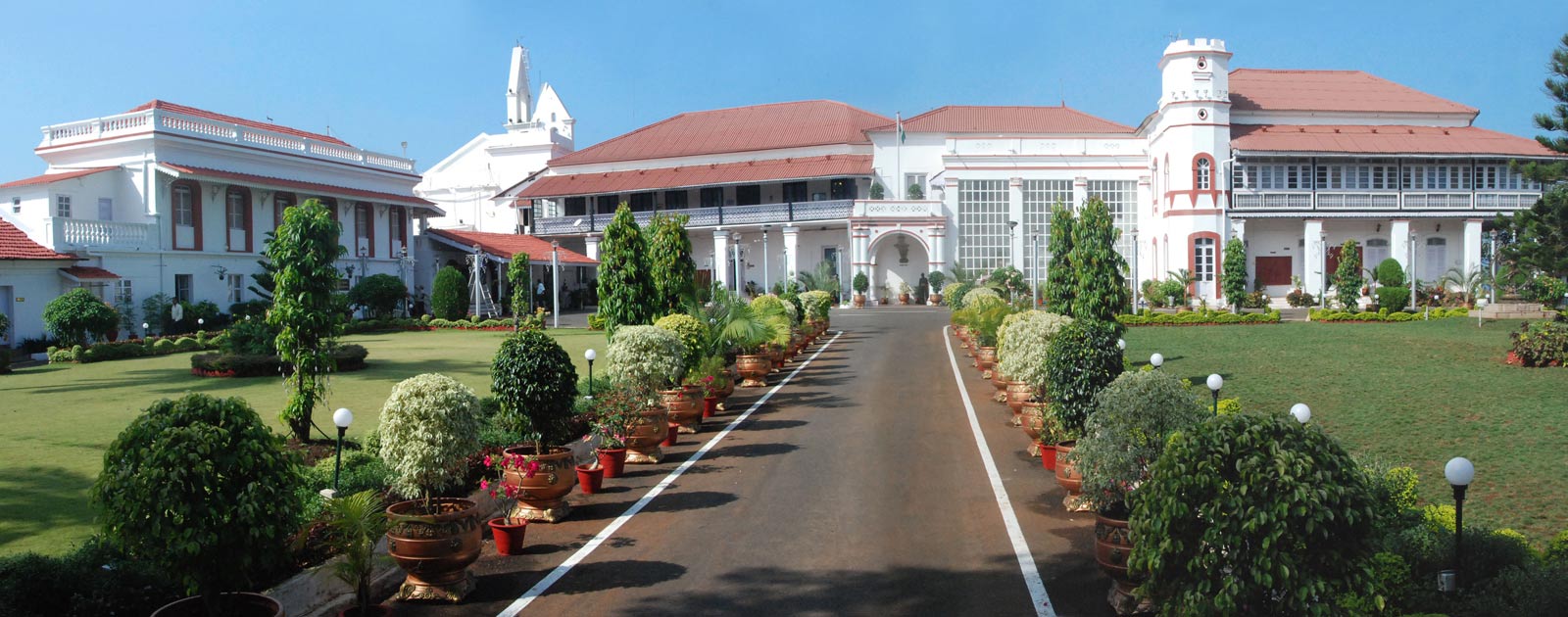By prioritising societal welfare over personal convenience, governmental institutions can enhance their credibility and effectiveness

The role of constitutional functionaries in India has traditionally been viewed through the lens of utilitarianism, where the focus rests on fulfilling duties that ensure the greatest good for the greatest number.
However, in the state of Goa, the consumption of luxury by government officials and the occupation of prime real estate for official purposes raise questions about the consistency of such practices with the principles of utilitarian governance. This trend becomes particularly visible in the use of historical and scenic locations for government buildings and guest houses, often to the exclusion of the general public.
In Bambolim, the Sainik Aramghar stands as a luxury guest house, providing Army officers with a scenic retreat atop the Bambolim Hills, overlooking the quaint village of St Andre. Similarly, the Raj Bhavan in Dona Paula, a colonial-era structure of immense historical significance, is occupied exclusively by the Governor of Goa, barring public access to a site that forms an integral part of Goa's cultural heritage.
These practices are not isolated. The VIP Guest House of the Income Tax Department in Porvorim serves as another example of the consumption of luxury, contrasting starkly with the department's rigorous taxation policies aimed at regulating luxury consumption among taxpayers.
The trend reflects a deeper inconsistency in the functioning of constitutional and governmental authorities in Goa. The principles of utilitarianism, which advocate for functional, efficient, and egalitarian governance, are at odds with the current practices observed in the state.
Positive utilitarianism, as discussed by Smart (1973), emphasises the need for institutions to adopt roles and functions that maximise societal welfare rather than serve the personal conveniences of officeholders.
This principle appears largely neglected in Goa, where postings of government officers, including those from the IAS, IPS, and IFS cadres, are often perceived as coveted positions offering unofficial vacation-like privileges.
Across other states, constitutional functionaries are expected to operate from utilitarian premises, with a focus on maximising public utility. Yet, in Goa, governmental institutions continue to occupy historical and aesthetically valuable properties, effectively converting these locations into exclusive zones for officialdom.
The Police Headquarters in Panaji, housed in a colonial-era building, and the military establishments occupying prime real estate in scenic areas further reflect this pattern. While such occupancy may symbolise historical continuity, it does little to enhance the functional efficiency or societal utility of these institutions.
The practice of using historically significant buildings or scenic locations for government offices and guest houses should be revisited. The utilitarian role of these institutions would be better served by relocating them to functional and accessible premises, allowing heritage properties to be repurposed for public use or tourism.
As argued by Bentham (1789), governance structures should reflect practicality and utility rather than opulence and exclusivity. In the context of Goa, this would involve transitioning from a model of consumption-oriented governance to one that prioritises public accessibility and the efficient functioning of governmental institutions.
The Raj Bhavan, for instance, could be transformed into a public heritage site, showcasing Goa’s colonial history while contributing to the local tourism economy. The relocation of the Governor’s official residence to a functional administrative building would align with the principles of positive utilitarianism, ensuring that a historically significant property benefits the wider community rather than serving as an exclusive privilege.
Similarly, guest houses such as the Sainik Aramghar and the Income Tax Department’s VIP facility could be repurposed to accommodate public events or serve as affordable accommodation for common citizens, thereby fostering inclusivity.
The emphasis on the utilitarian role of constitutional functionaries also necessitates a reassessment of the infrastructure supporting government offices in Goa. Historical buildings, while emblematic of the state’s rich past, are often ill-suited to the demands of modern governance.
Functional buildings designed to facilitate efficient administrative operations would better serve the needs of contemporary governance. Additionally, the relocation of government offices to less prime areas could free up valuable real estate for public and commercial use, contributing to the state’s economic growth.
Critically, the perception of Goa as a luxury posting for government officers must be challenged. The notion that official positions in the state offer an unofficial retreat undermines the ethos of public service and creates disparities in the administration’s operational standards.
Officers serving in Goa should be held to the same functional expectations as their counterparts in other states, with a focus on delivering public welfare rather than enjoying the perks of an aesthetically pleasing location.
The broader implications of this issue extend beyond Goa, highlighting the need for a nationwide discourse on the role of constitutional and governmental functionaries.
The adoption of utilitarian principles in governance, as advocated by thinkers like Smart and Bentham, offers a framework for reform. By prioritising societal welfare over personal convenience, governmental institutions can enhance their credibility and effectiveness.
In conclusion, the state of Goa presents a model example of the challenges associated with balancing historical preservation, public utility, and the functional role of governance. The current practices of occupying luxury properties and consuming prime real estate reflect a deviation from the utilitarian principles that should guide constitutional functionaries.
Reforming these practices would not only align governance structures with positive utilitarianism but also set a precedent for other states to follow. By prioritising functionality and public access, Goa can transform its governance model into one that truly serves the greatest good for the greatest number.